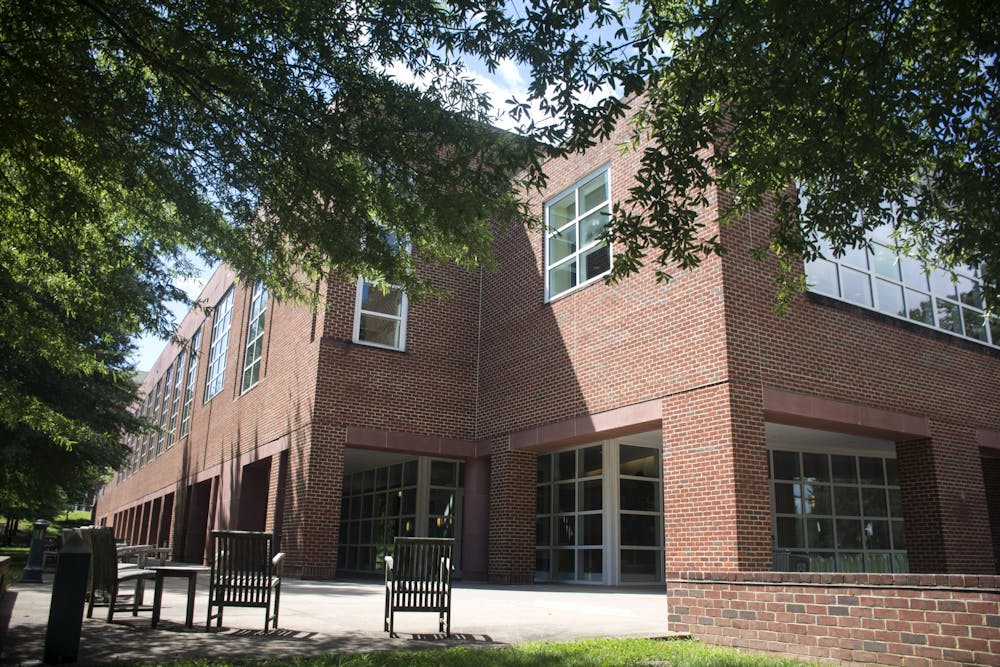Lea en español
Members of the Student Council Diversity Engagement Committee collaborated with the Muslim Student Association to create ways for Muslim students to obtain Halal meals during the Muslim holy month of Ramadan, which began April 12. During Ramadan, individuals who practice eat two meals a day — suhoor before sunrise and iftar after sunset — and fast in between as an act of worship. This practice lasts the entire month.
Orders for suhoor and iftar can be collected at Crossroads for the following day using one meal swipe between 8 a.m. and 2 p.m. and can be found near the bottom of University meal plan dining options on the GrubHub app. Students can also go to University Muslim Chaplain Aiyla Vajid for spiritual guidance and advocation for their needs during Ramadan.
Zareen Afzal, fourth-year College student and Student Council Diversity Engagement Committee member, along with Saqib Rizvi, president of the Muslim Student Association and fourth-year Engineering student, spearheaded the process.
They began by holding discussions with U.Va. Dining about having a booth dedicated to 100 percent Halal options in dining halls and a utensil section dedicated to Halal items to prevent any cross contamination, Afzal said.
Based on questions that the University’s dining facilities had about appropriate Ramadan accomodations, Afzal and Rizvi created and disseminated a survey to gauge the interests and concerns of Muslim students on Grounds in time for Ramadan. These questions asked what food students wanted and provided them the opportunity to ask for any other accommodations.
While U.Va. Dining has provided accommodations for students who celebrate Ramadan in previous years, there had been a lack of student involvement in facilitating Ramadan accommodations, Rizvi said, so the survey was a crucial step. U.Va. Dining wanted to ensure that Muslim students at the University could actively play a role in deciding what food the dining halls provided and other accommodations they would need.
Vajid also collaborated with Muslim students in order to ensure that U.Va. Dining would be able to provide appropriate accommodations for Ramadan.
“Collaborating with the Muslim students for Ramadan accommodations was a very meaningful experience,” Vajid said. “The students communicated their needs effectively, and the dining staff was incredibly receptive and willing to support.”
As the holiday lasts for an entire month, Afzal wants the community to recognize that as exams are going on as well, there will be students with different schedules who must fast from sunrise to sunset.
Vicki Gist, associate Dean of Students and Director of Multicultural Student Services, also provided valuable support during the process. Afzal expressed her gratitude to everyone who has been involved in bringing the initiative to fruition.
“I found this project very dear to me,” Afzal said. “We received a lot of interest and positive feedback from Muslim students with respect to this initiative. Both Saquib and Aiyla have been incredibly helpful with ironing out the plans for Ramadan. I also must give credit to Dean Gist who has and continues to support the Muslim community at U.Va., I want to thank them for joining us in this initiative to better create a more inclusive environment, and I'm very excited to see how all of this unfolds.”
According to Rizvi, however, the greatest challenge is the ongoing process of trying to raise funds and find money from other sources in order to pay for Ramadan meals for students who don’t have a meal plan.
Other contracted independent organizations at the University are also offering students support during Ramadan. The Muslim Institute for Leadership — a leadership, identity and community development program that focuses on the Muslim community — is hosting daily Zoom sessions during iftar and suhoor, allowing community members to join MILE members when they are starting or breaking their fasts.
The Muslim Student Association released a statement Tuesday acknowledging that this year’s Ramadan is the first one that falls entirely within the academic year, which may prevent many individuals from being able to spend Ramadan with their loved ones. However, the organization reflected upon this as an opportunity to be intentional with time and further emphasized their commitment to support students during Ramadan.
“Many of our brothers and sisters may not have access to adequate meals for iftar or suhoor, so the council would like to especially extend a hand to anyone who may need assistance in obtaining proper sustenance this month,” the statement read.







